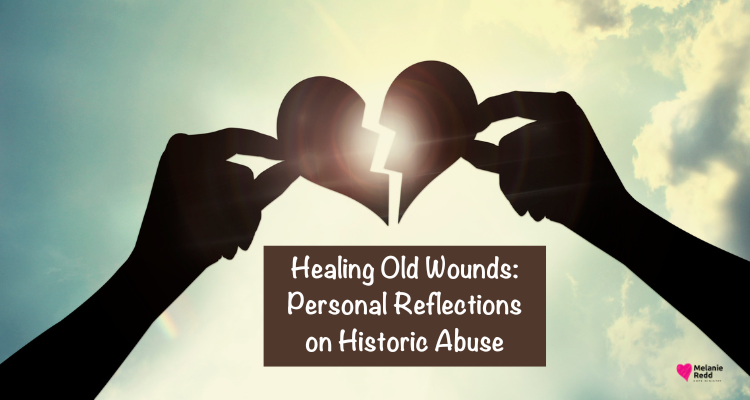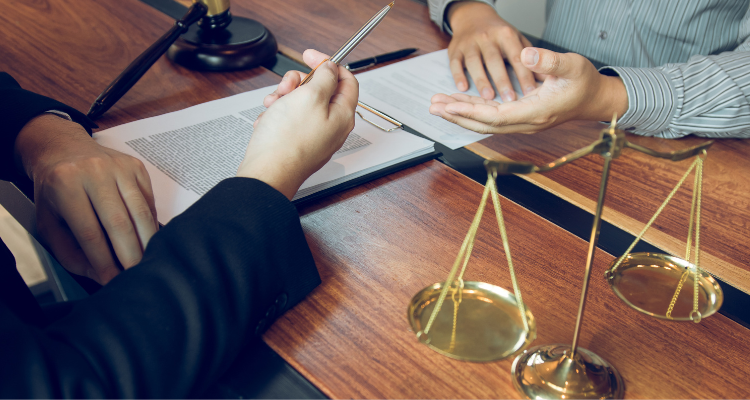Healing Old Wounds: Personal Reflections on Historic Abuse

Healing Old Wounds: Personal Reflections on Historic Abuse
The scars left by historic abuse can linger for a lifetime, affecting not only those who have directly experienced it but also their families and communities. Acknowledging these wounds is often the first step towards healing. Recognition of the trauma and its enduring impact plays a crucial role in the journey of recovery.
For many survivors, the path to healing begins with voicing their experiences. Sharing stories not only lightens the emotional burden but also serves as a powerful tool in raising awareness. This can empower others to come forward and seek justice, helping to create a supportive community dedicated to healing.
This Article – Healing Old Wounds
This article will explore how the legal system offers a formal route for survivors to seek justice and closure by pursuing historic sexual abuse claims.
Even more, it will emphasise how engaging with compassionate legal professionals can also play a vital role in emotional healing by validating experiences, restoring a sense of control, and providing supportive guidance through a difficult process.
The Legal Pathway to Healing
One of the avenues towards healing is through the legal system, which provides a structured path for addressing and resolving historic sexual abuse claims. Legal actions can offer a sense of justice and closure, contributing significantly to the healing process. Engaging with legal professionals who specialise in these cases can provide much-needed guidance and support.
The pursuit of justice, however, is not without its challenges. The legal system can be daunting, and the process may dredge up painful memories. Nevertheless, understanding your rights and the options available is crucial.
Emotional Healing and Support Networks – Healing Old Wounds
Alongside legal recourse, emotional healing is fundamental. Establishing a support network comprising friends, family, and professional counsellors can significantly aid in overcoming the trauma of historic abuse. Emotional resilience is fostered through open communication and shared experiences.
Support groups offer a safe environment where survivors can connect with others who have faced similar challenges. These groups provide a platform for sharing strategies and insights, which can be instrumental in the healing journey. The camaraderie and understanding found within these groups can help mitigate feelings of isolation and despair.
Moreover, accessing educational resources can further empower survivors. Comprehensive guides for survivors of sexual violence enable individuals to better understand their entitlements and the processes involved in seeking justice and support.
The Role of Mental Health Professionals
Engaging with mental health professionals can significantly bolster the healing process. Therapists and counsellors offer specialised techniques and therapies tailored to address the unique needs of abuse survivors.
Cognitive-behavioural therapy, for example, has been proven to be effective in treating trauma-related symptoms and helping individuals regain a sense of control over their lives.
Through continuous support and professional guidance, survivors can work towards reclaiming their narrative and finding a renewed sense of hope and purpose.
Empowerment through Education and Advocacy
Education is a powerful tool in combating the effects of historic abuse. By understanding the psychological and societal dynamics at play, survivors and their allies can better navigate the complexities of recovery. Empowering oneself with knowledge not only facilitates personal healing but also equips individuals to contribute to broader advocacy efforts.
Advocacy plays a crucial role in shaping policies and raising awareness about the prevalence and impact of historic abuse. By participating in or supporting advocacy groups, you can help drive change that benefits not only current survivors but also works towards preventing future instances of abuse.
Accessing reliable resources is key for effective advocacy and education. For instance, comprehensive studies and publications, such as those found here on NIHR, provide valuable insights into the psychological impacts of sexual assault on teenagers.
Navigating the Challenges of Disclosure
Deciding to disclose past abuse can be daunting. It involves vulnerability and the risk of reopening old wounds. However, it can also be a liberating step, offering a sense of relief and the opportunity to pursue justice and healing. Understanding the potential responses from those around you and preparing for them can help mitigate the emotional impact of disclosure.
It’s important to choose the right moment and audience for your disclosure. Trusted family members, friends, or mental health professionals can be the first to hear your story, providing initial support and validation. Over time, this can form the basis for broader disclosures, should you wish to extend your narrative to a wider audience.
Legal and Social Support Systems
In many countries, there are legal and social frameworks designed to support survivors of historic abuse. These systems can offer protection, legal advice, and emotional support to those who come forward.
While navigating these frameworks can be complex, the benefits of accessing them can be profound. They provide not only a means to seek justice but also a way to connect with others who have had similar experiences, fostering a sense of community and collective strength.
Healing Old Wounds: Moving Forward with Hope and Resilience
Healing from historic abuse is a deeply personal journey marked by both challenges and triumphs. While the path may be fraught with emotional hurdles, the resilience and courage of survivors continue to inspire significant societal change. By engaging with legal, emotional, and educational resources, you can take meaningful steps towards healing and empowerment.
As society progresses in its understanding and support of survivors, the hope is that future generations will benefit from a landscape where historic abuse is recognised, addressed, and ultimately eradicated. Through collective effort and individual courage, the wounds of the past can begin to heal, paving the way for a future built on understanding, justice, and hope.
Special Notes
Please be advised this article is for informational purposes only and should not be used as a substitute for advice from a trained legal or health professional. Please seek the advice of a legal or health professional if you’re facing issues regarding historic sexual abuse.
Were you encouraged by what you read?
Then, would you share this article with a friend, co-worker, or family member?
Or, maybe you can send it to a friend or family member?
This blog occasionally uses affiliate links and may contain affiliate links.
Additionally, Melanie Redd is a participant in the Amazon Services LLC Associates Program.
This is an affiliate advertising program designed to provide a means for sites to earn advertising fees. These are earned by advertising and linking to amazon.com.
Also, for more on my disclosure policy, click HERE.
© Melanie Redd and Hope Ministry, 2025. Unauthorized use and/or duplication of this material without express and written permission from this blog’s author and/or owner is strictly prohibited.
Further, excerpts and links may be used, provided that full and clear credit is given to Melanie Redd and Hope Ministry.
Please give appropriate and specific directions to the original content.




0 Comments